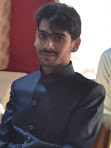What's your Mental Health Story ?
Late last fall, when Executive Director of Acton-Boxborough United Way (ABUW), Griet Dehandschutter, walked past an empty hallway that connects Terminal B and C on the departure level at the Boston Logan Airport, the amazingly powerful giant mural exhibit on Deconstructing Stigma by McLean caught her attention. The exhibit carries stories and pictures of volunteers affected by mental illness and its stigma. These are stories of hope and resilience that the campaign participants shared with a view to offer a different perspective on mental illness. One of the displays showcases Vaidehi’s story. “I think the biggest problem in my culture is that mental illness is not thought of as a serious illness. It’s considered to be ‘all in your head’. Of course we know that’s not true”, says Vaidehi in one display. She is a writer and editor, who was raised in a South Asian family, and is referring to her anxiety and depression.
These stories are powerful and Griet wondered if we could bring the power of stories to the project we were planning for our community. Mental Health is an important part of the organization’s 3-year strategic roadmap Thrive2024, and over the years ABUW has built a strong, mostly volunteer driven Mental Health Committee, with some highly qualified experts in the field and some community members. Amy Cerel and I, Gauri Tandon, both ABUW Board Members, are committee Co-Chairs. While I bring in a diverse community perspective to the committee and bring in my lived experience, Amy has a Masters in Social Work, and shares her lived experience as well. Incidentally, Amy was a founding volunteer (picture as featured in the McLean Campaign) in the campaign that Griet was referring to and Amy’s story continues to be shared via McLean’s website. When Griet raised the question of stories, Amy brought the concept full circle - with her experience within this wonderful paradigm of McLean’s “Deconstructing Stigma” to our community. Other than McLean, there are other national organizations such as NAMI Share your story and the Yellow Tulip that provide a platform to share stories of folks’ mental health journeys. A more local example is that of Adam Burak, originally from Acton, who has a podcast called “We will break the stigma”.
Resilience is the awareness and power of a person, family, organization or community to find, use and create resources to recover from challenges and generate positive change. Bringing the powerful concept of personal stories into the 21-Day Resiliency Challenge will help create awareness and acceptance around mental health, leading to a stronger voice from more community members, a willingness to ask for help as well as knowing where to ask for help, while fostering an intimacy and connection within the community. Not only do stories evoke a strong sense of connection with the storyteller, they are known to be a way for the storyteller to heal as well. Dr. Annie Brewster, MD, writes in her post “Stories Connect Us” about how people heal through storytelling, and says that digging into our personal stories and reflecting on them is good for us. And while sharing them with others makes us vulnerable, it is an important part of this healing.
If you have a story to share about a diagnosed mental illness and the coping skills you applied to manage it, we will love to hear about it and include it in our project. You may also have stories about emotional or cognitive stress that you managed with non-traditional therapy such as art, music, meditation, pets, nature etc. We welcome stories of stigma due to race, religion, cultural, identity or any other diversity that may have been a cause of stress. This project is for the community, by the community and we hope that it will align with ABUW’s mission of mobilizing the caring power of the community to drive positive, lasting change and help make our community more resilient.













Gauri, Thank you so much for your leadership and dedication in raising awareness across our community around mental health challenges and ways we can support each other to build resilience. I believe that sharing stories, as neighbors, will help realize that so many of us face mental health challenges, no matter who we are, and that none of us are alone.
ReplyDeleteWhenever I have shared about my childhood trauma, someone else has stepped forward and started sharing, sometimes for the first time, that they too have been victims of sexual abuse as a child. It has been empowering to share my story and find my voice, especially when I was told to keep a terrible secret. We are not alone. Mental health deserves to be talked about without feeling shame.